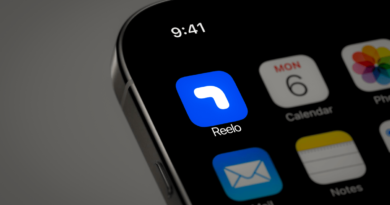Leave sex workers out of your NPC TikTok discourse
Every time a woman monetizes the absurd, she’s accused of making fetish content. It’s a symptom of the anti-sex moral panic sweeping pop culture — and this time, it’s coming for TikTok’s NPC creators.
Snippets of these creators’ livestreams keep going viral, and because the internet loves to hate on women, the nonsensical mannerisms that these creators use in their content has been written off as disturbing, cringe and definitely a sex thing. Sex workers, meanwhile, are unfairly dragged into dehumanizing conversations about the genre.
What onlookers actually seem to be mad about is the fact that these creators — most of whom are attractive young women — manage to profit off of being weird online.
The phrase NPC, or “non-playable character,” refers to video game characters whose personalities, dialogue and story lines cannot be controlled by the player. Instead, all interactions with NPCs are preset, which means the characters are limited to repeating their loops with little other substance. Online, particularly on TikTok, Reddit and 4chan, NPC is used as a derogatory term for people who aren’t all there.
NPC behavior is typically shallow and slightly uncanny. One TikTok creator described NPCs as lacking critical thinking, empathy and “passion and intrigue for higher concepts.” If you tend to give canned answers and rarely deviate from your daily routine, you might be an NPC. In other words, you aren’t the main character; at best, you fill in the background of someone else’s life.
Despite the demeaning connotations, NPCs are having their moment in the spotlight. The once niche NPC livestreams are gaining popularity as a lucrative genre of content. In these streams, creators imitate the awkward, stiff movements typically seen in throwaway characters that didn’t get enough design time. With neutral facial expressions and mesmerizing consistency, they sway back and forth, utter catchphrases in return for digital currency and above all, stay in character for hours at a time.
Fedha Sinon, a TikTok creator known as PinkyDoll, became the face of the trend this month when clips of her livestreams went viral on Twitter. Her content perplexed viewers. She pops popcorn kernels with a hair straightener. She responds to gifts with repetitive phrases like “mmm ice cream so good,” “gang gang” or, for select viewers, “love you!” In one of her most popular bits, she pretends to pop balloons across the screen with hypnotizing cadence of a practiced ASMR artist.
“It’s an NPC control kink,” one Twitter user commented on a video of Sinon’s stream. “Don’t look [too] much into it … I wish I didn’t. Butttt basically they’re controlling her like a video game character.”
Others accused her of “catering to pedos” because she initially told viewers that she’s 19 years old, not 27. One commentary creator described NPC TikTok as “just another gateway drug for getting boys hooked on fetish porn.” Another Twitter user called Sinon an “NPC sex doll for incels.”
The comments are degrading to both NPC TikTok creators and to sex workers. The sudden attention on NPC creators opened the door for bad faith discourse around online sex work, even though these TikTok creators aren’t making this content for sexual gratification. Criticizing NPC livestreams as predatory kink content adds to the stigma surrounding sex work. Even if the content that NPC creators are making isn’t explicitly sexual, the criticism targeting them is inherently linked to the anti-sex sentiments pervading online culture.
“NPC is not a kink specifically for pedophiles. Let’s be careful with our language,” dominatrix and adult content creator Heaux House tweeted. “There are NPC creators that have existed before ppl found out about ole girl … Be sure to be very clear on what and who you’re critiquing. Don’t do that thing y’all do where sex work(ers) get hit with your misinformed tweets.”
TikTok livestream creators make money when their viewers send them gifts. Viewers can buy TikTok coins, and use those to purchase digital gifts, which each have their own monetary value; 65 coins cost about $1, 1,321 coins cost about $20 and 6,607 coins cost about $100. TikTok users can then spend the coins on a variety of gifts, which range from an ice cream cone (1 coin) to a balloon (300 coins.) Higher-ticket items include an octopus (10,000 coins), “Sam the whale” (30,000 coins) and TikTok stars, which clock in at 39,999 coins.
Gifts are converted to “Diamonds,” which creators can withdraw. TikTok takes a 50% cut, so an octopus, for example, will amount to 5,000 Diamonds for the creator, or about $75.
Sinon, and the wave of creators joining in on the trend she started, unlocked the golden formula for monetizing livestreams. The weirder they act, the more people will stay to watch. The more people who send them money, the weirder they’ll act. Creators with consistent viewership can rake it in if they’re live for hours at a time.
Sinon told Motherboard that she streams six hours a day, seven days a week. When she started, she made $250 per day. After going viral this month, she averages between $2,000 to $3,000 per stream, The New York Times reports. Across her social media accounts, including Instagram and OnlyFans, she makes around $7,000 per day.
Despite speculation from others online, NPC content isn’t fetish content. Though Sinon and Cherry Crush, another popular live creator, also create content for OnlyFans, their TikTok streams are not sexually explicit. They don’t wear revealing clothing. They aren’t being compensated for providing sexual services. Although their NPC videos may drive curious viewers to their paywalled adult content, they don’t promote their other accounts on their livestreams. They also don’t incorporate NPC content into their NSFW platforms.
“I don’t make my show sexually suggestive at all,” Cherry Crush told The New York Times. “I always thought it was just funny & entertaining.”
There is a transactional nature to the content that Sinon and Cherry Crush make, and their appearance does influence their popularity. But being conventionally attractive and good at monetizing an audience does not make these creators predatory sex workers.
NPC TikTok creators are the latest to be accused of pushing fetish content onto vulnerable, impressionable minors. Other genres that are supposedly guilty of being vehicles for secret kinks include ASMR content, excessively messy food channels and viral crafting “hacks” that might feature a woman’s hands or feet. TikTok creators themselves have built followings by reacting to off-putting videos and judging whether or not the videos are secretly fetish content.
There is NSFW content that overlaps with these genres — the age-old Rule 34 asserts that if it exists, there’s some kind of porn about it online. But that explicit content, which is produced with the intention of sexual gratification, can exist independently from the genre itself.
Writing off any weird behavior as kink content further demonizes sex work as predatory and shameful. Social media users tend to assume that content they don’t immediately understand must be perverse, especially if it’s presented by a young woman. We exist in an era of the internet that simultaneously sexualizes women who exist publicly, and yet is increasingly hostile toward sex work. Women have been targets of “grossness from creeps” even if they aren’t a “fetish content creator,” as Twitter user darshanaheena said.
“I’ve gotten that exact same treatment just from blogging on tumblr,” she tweeted. “I used to do occasional sponsored posts with swimwear on tumblr and guys would post my blog photos to fetish site discussion boards and they would all find my tumblr and leave me gross messages/replies. None of my content was sexual in nature, people are gross regardless.”
The possibility that fetish videos could be “hiding in plain sight” on TikTok, an app that is just as popular with adults as it is with children, instills an unrelenting moral panic among those who aren’t online themselves.
Purity culture is back with a vengeance, and the war on sex extends beyond political affiliation and generational divides. Boomers with Facebook accounts will find “evidence” of coded language for grooming in anything. Gen Z’s “puriteens” have been criticized for decrying common depictions of sexuality, like on-screen nudity between two consenting adult characters, as exploitative, predatory and problematic. Fandom culture, which once pioneered online sex positivity through fanfiction, is becoming more regressive by the day.
It all feeds the same narrative: sex is scary and coming for your children.
It’s almost easier to assume that a young woman who profits off of acting odd must be catering to some kind of sexual desire. The reality isn’t that scandalous or particularly deep. Sometimes people just want to watch mindless, stimulating content from a pretty woman — and that doesn’t make it secretly porn.





